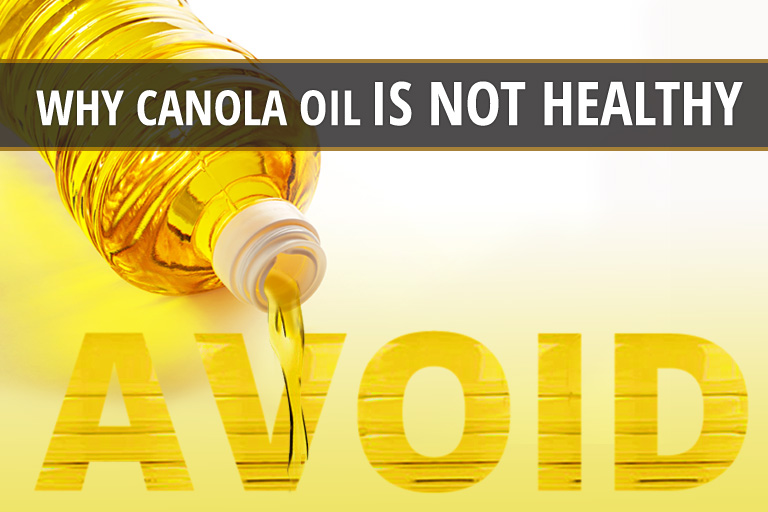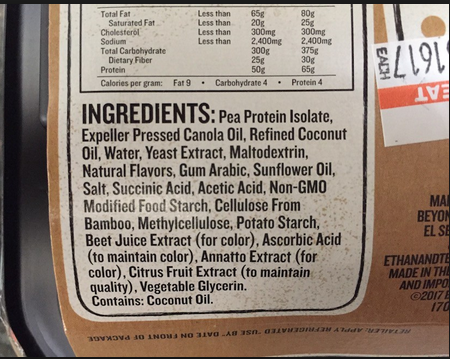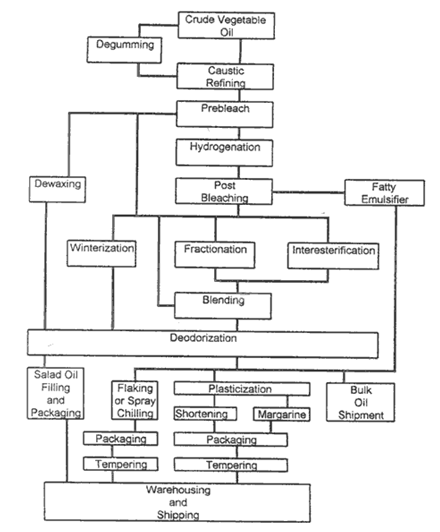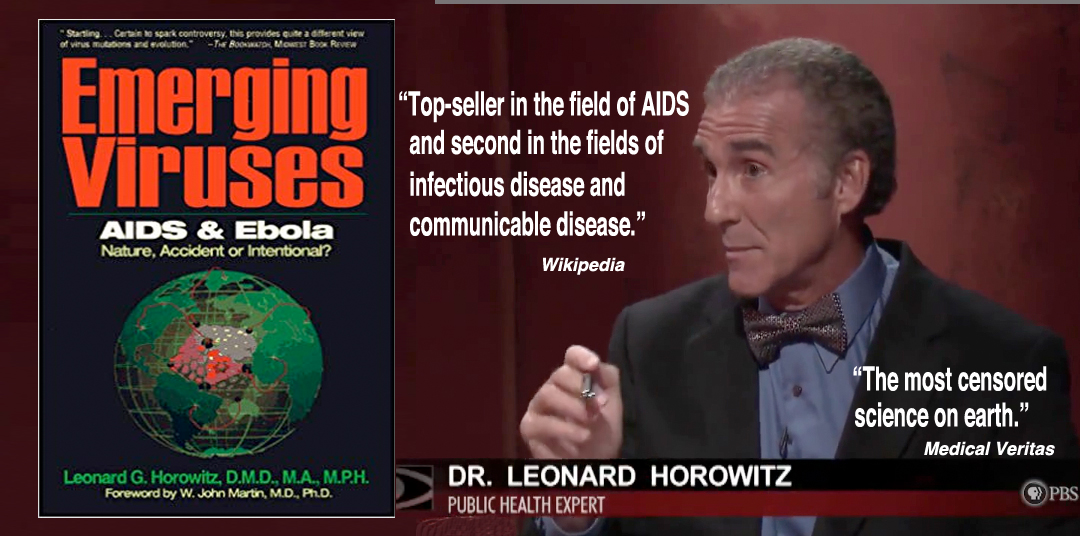
Why Canola is Not Healthy
Introduction by
Dr. Leonard G. Horowitz
Have you noticed your stomach feeling bloated and pained after eating out at restaurants? Have you noticed this ‘gastrointestinal malaise’ increasing over the past few years? Here’s why. . . . You are being poisoned by Canola oil.
This statement contradicts the popular belief that “Canola oil is natural.” It controverts the myth that “Canola oil is safe and healthy.” These falsehoods are overturned by the facts presented in the following excellent article by Roxanne McDonald.
At the beginning of this century, I lived in northern Idaho on a property adjacent a railroad track. Suddenly, and increasingly, I noticed long trains hauling cars marked “CANOLA” heading south from Canada. This was my introduction to “Canadian Oil.”
Shortly thereafter I learned that the seeds pressed to extract the oil were genetically-engineered. That disturbed me because Canola advertisers falsely advertised the oil was “natural” and “non-GMO.” This consumer fraud continues.
Be it known that ‘truth-finding’ websites defraud readers by their omissions and misrepresentations. And they do so by referencing similar sources of disinformation and misinformation. For example, industry marketing agent Hannah Broaddus falsely ‘debunks’ 5 purported ‘myths’ opposing her paycheck here. She cites Big Pharmwhore Snopes for its ‘truth-finding,’ and quotes the website thusly:
 “In 1974, rapeseed varieties with a low erucic content were introduced. Scientists had found a way to replace almost all of rapeseed’s erucic acid with oleic acid, a type of monounsaturated fatty acid. (This change was accomplished through the cross-breeding of plants, not by the techniques commonly referred to as ‘genetic engineering.’)”
“In 1974, rapeseed varieties with a low erucic content were introduced. Scientists had found a way to replace almost all of rapeseed’s erucic acid with oleic acid, a type of monounsaturated fatty acid. (This change was accomplished through the cross-breeding of plants, not by the techniques commonly referred to as ‘genetic engineering.’)”
To the contrary, “Scientists had found a way” infers genetic engineering. Snopes, like a flim-flam swindler, abuses words to misrepresent reality.
In fact, the scientists during the 1960s substantially altered the rape seeds to produce ‘canola seeds’ containing less erucic acid and more oleic acid. It does not matter that this occurred when ‘crude’ methods of genetic engineering were used, versus more modern gene manipulations. The entire seed engineering process, from start to finish, involved genetic analysis and alteration of the natural seed. This can be known by simply reading the early research reports, such as this one. Harvey and Downey, for instance, wrote in their scientific abstract their first two words “Genetic analysis.” Their sentence makes known “two genes displaying no dominance” were to be outbred.
Thus, the argument that Canola seeds are not genetically-engineered is much like arguing that a cake baked by the sun is not a cake, nor baked at all.
The industry propaganda continues. “By 1978, all Canadian rapeseed produced for food use contained less than 2% erucic acid. The Canadian seed oil industry rechristened the product ‘canola oil’ (Canadian oil) in 1978 in an attempt to distance the product from negative associations with the word ‘rape.’”
The propaganda said nothing about the “negative associations” between rape seeds and the toxicity risks made known in the following article by McDonald. Purportedly, by 1990, toxic erucic acid levels in canola oil dropped to “0.5% to 1.0%, in compliance with U.S. Food and Drug Administration (FDA) standards.” Snopes is again cited as the discredited source.
Even assuming this statement were true, there are still two problems: (1) the FDA is widely known to have been corrupted by special interests. It is a ‘captured regulator’ administering policies favoring BigPharma, Big Biotech, and Big Money, not We The People. This is adequately evidenced by the disappearance of compelling evidenced as referenced below; and (2) supposing your cooking oil contained 0.5% arsenic or mercury. Would that enjoy consumer confidence? Not without extensive propaganda as the Canola industry outputs.
Accordingly, the use of Canola in trusted foods has soared. So called ‘health food stores’ are not immune. I was shocked to find Canola widespread in Whole Foods, for example. “Why would they put Canola into dried ‘organic’ cranberries?” My partner, Sherri Kane, identified that Whole Foods is putting Canola oil in just about everything. She discovered the same corruption happened at the vast majority of restaurants. At the Cheesecake Factory, for instance, every item on the menu, including their pizza and cheesecake, included Canola.
So we extended our investigation. We experimented on ourselves. We consumed items with and without Canola to see if we could ‘feel’ a difference. Indeed we did. We repeatedly experienced moderate to severe stomach pains, bloating, and gas every time we ate any food containing Canola. Sherri actually experienced much worse. It was as though she had an ‘allergy’ to Canola. Her digestive system suffered irregularity for days after each poisoned meal.

We have both since eliminated foods and restaurants serving Canola-laced poisons; and we encourage you to boycott those in your community similarly. We recommend you try to educate the business community’s management concerning these risks to public health. Refer decision-makers to articles such as this one. Your actions can help protect others, including children.
Consumers beware: Sherri investigated how Canola is being hidden in combination with other oils that are falsely marketed as ‘natural’ and ‘non-GMO.’ She learned that the poison is being used as an ingredient even in ‘vegan’ processed foods, such as “Beyond Meat” backed by Bill Gates.
Knowing what I know about geopolitics, economics, and covert intelligence operations, I am compelled to consider Bill Gates’s calls to reduce global populations. I am also compelled to recall Henry Kissinger’s National Security Memorandum 200 (“NSSM 200”) that similarly called for massive depopulation. NSSM 200 considered food supplies as a major option potentially used as a weapon to cull and kill undesirables. This recommendation was made in the context of Kissinger’s service as U.S. National Security Advisor overseeing the CIA and FBI that administered the MKULTRA mind-control social-engineering biological and chemical weapons projects at that time. I published substantial evidence in my American best-seller, Emerging Viruses: AIDS & Ebola–Nature, Accident or Intentional? , proving MKULTRA is ongoing, despite its falsely presumed cessation during the late 1970s.
This context of ongoing MKULTRA/MKNAOMI initiatives best explains my repeated gastrointestinal (“GI”) disturbances following Canola oil consumption. American officials christened this the “Russian biological cocktail” method of damaging and destroying targeted populations. This method of genocide combines chemical and biological assaults. This is done for stealth administration of the mass murder, for ‘plausible denial-ability,’ and for greatest efficacy and profitability. This is what we are witnessing.
That is, as chemicals are deployed, such as 0.5% erucic acid in Canola damaging guts, and gut flora dies and is replaced by pathogens from the repeated poisoning, damaging natural immunity against infectious and chronic diseases, contemporaneous biological assaults by GMOs terminally whack human targets.
Conspiracy reality or not, this explanation best suits the circumstances.
Why Canola Oil is Not the Healthy Oil You’ve Been Led to Believe
Can a “health food” eaten by millions really be dangerous?
Canola oil and its derivative, rapeseed, are primary suspects for the exceptionally high incidence of Asian lung cancer.
According to mainstream media though, canola oil is “good for the heart” offering viable monounsaturated fats similar to olive oil. Sadly, much of what we hear in the mainstream media and various “health” blogs has been influenced by aggressive marketing tactics of big food companies.
For this reason, it is critical to know what websites to avoid and where you can go to get trustworthy and accurate health information.
In order to understand how canola oil came into the marketplace, some historical background is needed.
A Bit of History on Canola Oil
We can trace olive oil back to olives and sesame seed oil back to sesame seeds, so wouldn’t it make sense that canola oil would come from canola seeds? Well, it’s not the case. There is no natural canola plant that produces canola oil.
In the late 1960s canola oil was invented in Canada. The oil was cheap to manufacture and a dominant ingredient in many processed foods. A derivative of the rapeseed plant, which is part of the mustard family of plants, canola oil has been hybridized to eliminate the lethal erucic acid found in rapeseed.
Olive oil was the product of choice among those who were health conscious; however, it was quite expensive to mass produce. So the food industry, needing a more affordable substitute, started selling rapeseed oil. Unfortunately, the rapeseed oil caused muscular heart lesions.
The erucic acid found in rapeseed oil is naturally poisonous to the degree that insects avoid it. Rapeseed oil is also the source of the notorious chemical warfare agent, mustard gas. The US banned rapeseed in 1956 when thousands of soldiers and civilians experienced blistered lungs and skin. Rapeseed oil also lubricated steam engines and ships due to its unique ability to adhere to wet metal.
In 1964, the food industry collaborated with both the chemical and nuclear industries in an attempt to reduce the toxicity levels of rapeseed. It took the food industry over a decade and a tremendous amount of genetic engineering to get rapeseed oil to be acceptable to the US market.
The late 1970s introduced a technique of genetic treatment involving cracking open seeds. Canadian plant breeders developed a variation of rapeseed that produced a monounsaturated oil low in erucic acid.
The name was changed to LEAR: Low Eruric Acid Rapeseed. LEAR was not well received in the US as its association with rapeseed was too glaring. Not to mention having the word “rape” in a product name, which did not promote a healthy image.
In 1978 the food industry merged the words “Canada” and “ola” meaning oil – creating the name Canola Oil.
The Impact of Canola on the Food Industry
Prior to the late 1970s, the food oil industry collaborated with the American Heart Association, departments of nutrition at major universities and numerous government agencies to advocate polyunsaturated oils as being heart healthy. This was in contrast to the false hardening of the arteries effect of saturated fats.
However, by the late 1970s/early 80s, the cooking oil industry in North America had a huge dilemma. The consumption of polyunsaturated oils – corn and soybean oils in particular – were directly connected to numerous inflammatory health complications: namely cancer and heart disease.
Subsequently, as a result of this problem, the food industry had to discontinue using large volumes of polyunsaturated oils and no longer made claims of the oils being healthy.
Furthermore, manufacturers would not resume the use of traditional “healthy” saturated fats – butter, lard, tallow, palm oil and coconut oil mainly due to their narrow profit margins.
During the early 1980s canola oil began an initial marketing campaign in the United States. In order to receive a full green light to move forward, the oil needed GRAS (generally regarded as safe) approval from the US Food & Drug Administration (FDA).
GRAS rating awards typically go to food and herbal products with a history of no known adverse effects. However, canola oil was a new product that had no previous history (although it was associated with a banned product known for having lethal side effects). On the other hand, rapeseed oil was never granted GRAS approval.
A change in the regulation needed to take place before canola oil could be marketed in the US. We still do not know exactly what happened, but GRAS was granted to canola oil in 1985. The rumor mill churned such tales citing that the Canadian government, as a result, had a $50 million deficit in their coffers.
Originally canola oil was invented through basic laboratory breeding and selection techniques. Nevertheless, in 1995 a major alteration launched a canola that was genetically engineered to contain bacterial DNA that would make it resistant to toxic herbicides (Roundup).
Genetically modified crops are a combination of the DNA of two or more different species that cannot naturally reproduce together (like a chicken and a celery stalk). Such “frankenfood” could never occur in nature, even by random mutation. Today, most canola oil comes from genetically engineered seeds that are so far deviated from the natural rapeseed that it can be patented.
Around 82 percent of the world’s canola crops are currently genetically engineered to resist Roundup. Monsanto presently owns patents on the Roundup-Ready canola seed and farmers can be sued for not using the seed or having “unauthorized” canola plants in their fields.
It is also next to impossible for farmers (organic or otherwise) to battle the superweeds that are evolving in reaction to constant massive doses of Roundup.
The Effects of Canola Oil on the Body
Even though it may be true that canola oil is high in monounsaturates (canola oil ranges between 55 – 65 percent monounsaturated fat and between 28 – 35 percent polyunsaturated fat, with only a minimal amount of saturated fat), canola oil is still anything but healthy.
The polyunsaturated component of canola is cause for major concern. The oil is extremely unstable under heat, light and pressure, which causes oxidation and releases free radicals inside the body.
Canola oil produces high levels of butadiene, benzene, acrolein, formaldehyde and other related compounds when heated, which become infused with the cooked food. All traces of omega-3 fats are essentially gone.
Moreover, in the chart below you’ll see that canola oil undergoes a heavy duty manufacturing process of abrasive refining, degumming, bleaching, and deodorization, using high heat and questionable chemicals before the final product is created.

A study released in 1996 by Japanese scientists showed that a special canola oil diet killed laboratory animals. Reacting to the unpublished, but verified and alarming information, the study was repeated by Canadian scientists this time using piglets and replacing milk with canola oil. In 1997, Nutrition Research published the second study results, where researchers verified that canola oil drained vitamin E from the piglets to hazardously low levels.
Vitamin E must be in the body when eating processed fats because it controls the oxidative degeneration of lipids and blocks free radicals from invading the cell membranes.
To Sum it All Up
If you have watched any of The Quest For The Cures docu-series, one thing I hope you learned is that you want to eat foods as close to nature as possible. The caustic manufacturing process of canola should alone be enough to cause you to avoid this toxic oil.
In addition, canola oil inflames your body with foreign, genetically engineered DNA, trans fats, and toxic chemical residues. It is also a plague on the environment and a threat to organic farming and should be avoided.
Recommendations for Healthier Fats and Oils:
- Extra virgin olive oil that is cold pressed – conducts best under lower cooking temperatures.
- Virgin coconut oil – cooks well under a wide range of temperatures. Offers an abundance of healthy saturated fats in the form of medium chain triglycerides (MCT), one being lauric acid which helps support the immune system.
- Organic grass-fed butter or ghee – a great source of Conjugated Linoleic Acid (CLA) which has shown in studies to help prevent cancer, build muscle and burn fat. Both ghee and butter are very stable under high temperatures as well.
If you haven’t noticed already, you will see that canola oil is used in almost all prepared foods at health food stores. Please speak out to the owners, when possible, to see if they will switch to a healthier oil or use no oil at all. Most importantly, please share this critical information with friends and family.
Sources:
- Dr. Leonard G. Horowitz – The Truth About Canola Oil
- The Inconvenient Truth About Canola Oil – The Small Footprint Family
- The Bomb Shell Truth About Canola Oil
- Dr. Axe – Food is Medicine
- The Great Con-ola – Weston A. Price Foundation
- The DIRTY Truth about Canola Oil… – Truth About Abs
- Scientists Finally Issue Warning About Canola Oil
Note from Medical Veritas editors: Check out the USDA research about Canola oil that disappeared from their website. We recovered it with some research and preserved it HERE.





